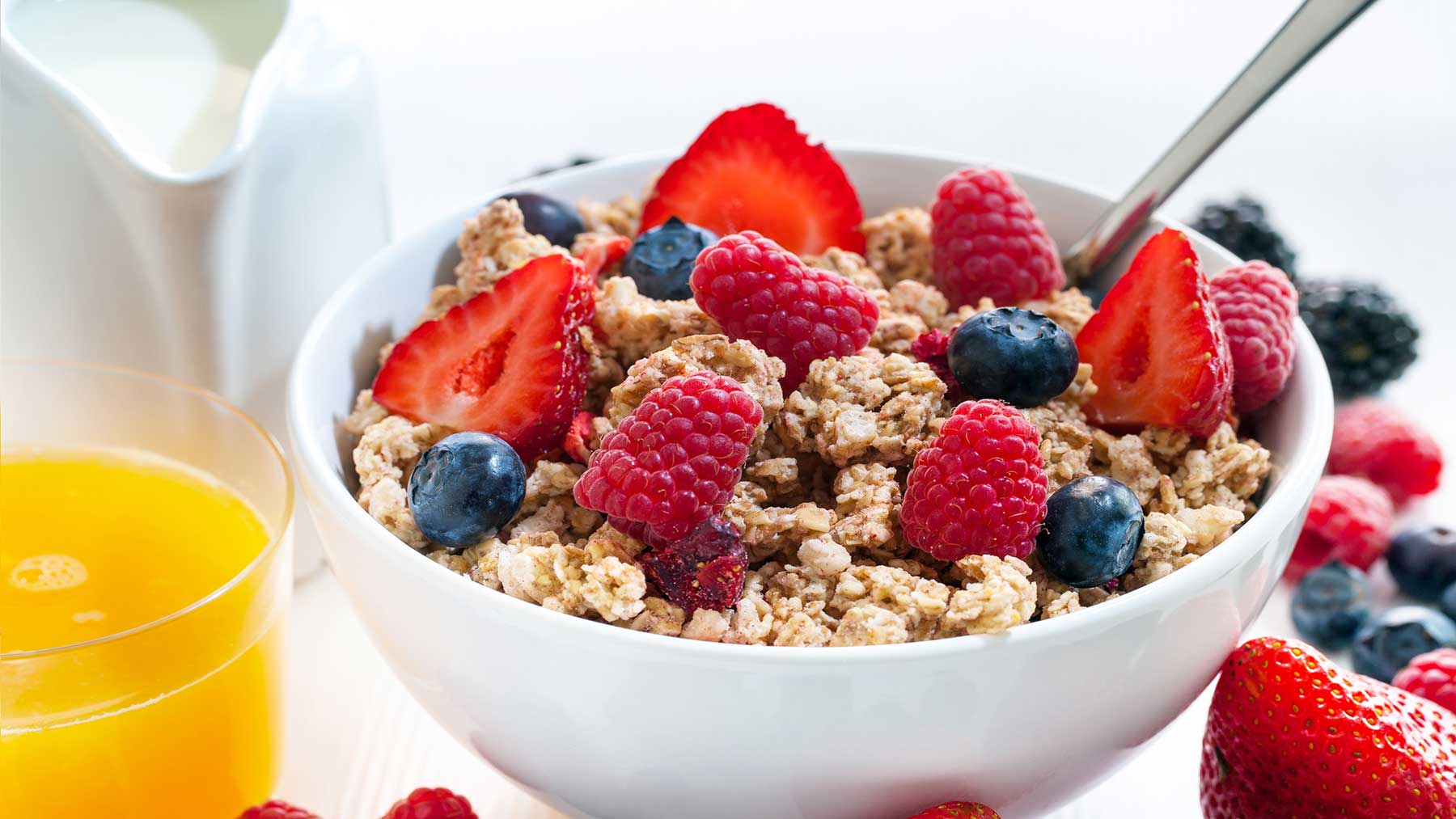Improve your mood every day: Just eat breakfast

There’s a reason the word “hangry” – a combination of “hungry” and “angry” – has entered our vocabulary. (You know, like “I am grumpy and starving. I need to eat so I am not hangry anymore.”) It’s easy to see that food affects both your mental and physical health.
“Food directly impacts behavior and emotions, and putting a little thought into your morning routine can help improve your mood all day long,” says Lauren Blake, licensed and registered dietitian, nutritionist and certified health and wellness coach at The Ohio State University Wexner Medical Center.The effects on mood begin where the day begins: at breakfast.
For many, the problem isn’t what to eat for breakfast, but whether to eat. Research shows that people who eat a healthy breakfast have fewer cravings throughout the day, have better self-control and sustain higher productivity.
What to eat for breakfast
Designing a healthy morning meal isn’t difficult. The best breakfast contains a mix of protein, fat and complex carbohydrates.
Popular staples like sugary cereal, bagels and muffins give you a boost of energy shortly after eating, but as refined carbohydrates, they won’t keep your energy levels steady, and you’ll be hungry again soon.
Protein-rich foods (like whole wheat toast and oatmeal) can increase your levels of tyrosine, dopamine and norepinephrine, which will increase your alertness. Complex, high-fiber carbohydrates, such as fruit, whole grains and starchy vegetables, digest more slowly than simple carbohydrates. This makes you feel fuller longer, and your body can better control its blood sugar.
Consider adding healthy fat to the mix, too.
“Hard-boiled eggs, nuts, Greek yogurt and nut butters are all easy, filling options,” Blake says.
The nutrients behind a healthy breakfast
You can choose some foods based on how they will specifically improve how you feel. Here are some mood-boosting nutrients to know:
- Thiamine (vitamin B1): Found in legumes, some seeds and fortified grains and cereals, thiamine helps maintain energy and coordinate nerve and muscle activity. A thiamine deficiency can lead to weakness, irritability and depression.
- Folate (vitamin B9): Found in leafy greens, legumes and fortified grains, folate helps support red blood cell production and helps nerves to function properly.
- Iron: Found in spinach, tofu, potatoes, eggs, raisins, nuts and fortified cereals and breads, iron can help prevent depression, fatigue and inattention.
- Omega-3 fatty acids: Flaxseed, hempseed, chia seeds, egg yolks and black walnuts are great sources for these healthy fats that can improve your memory and mood. They can also prevent depression, negative thoughts and impulsive actions.
- Phenylethylamine (PEA): Dark chocolate is an easy-to-find source for this chemical, which encourages your brain to release endorphins, making you feel happier. Chocolate that has at least 70 percent cacao solids will allow you the most benefits without much added sugar.
“If you are mindful about the foods you eat, small amounts of your favorites can still give you the right amount of energy to start the day,” Blake says.Creating a healthy, balanced breakfast doesn’t have to be a chore.




